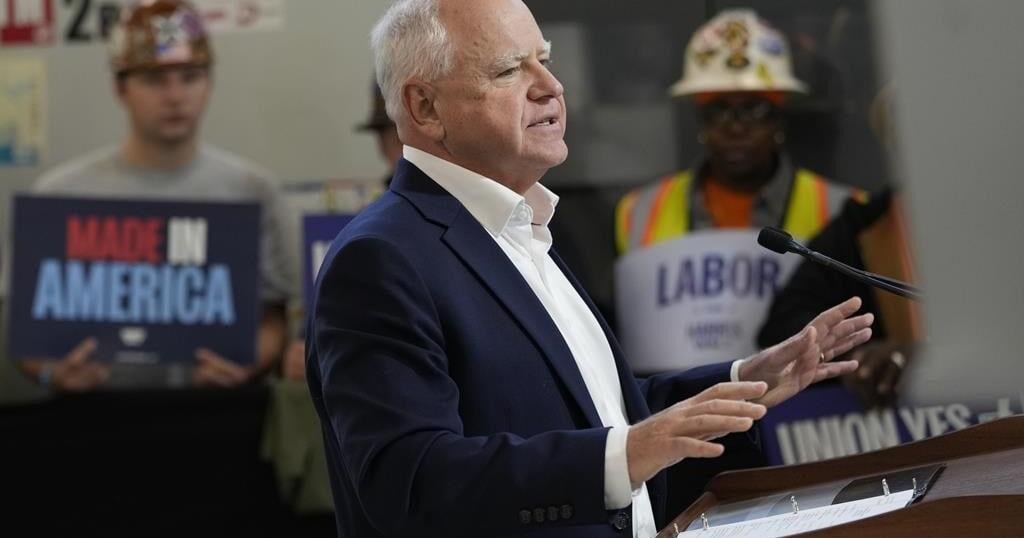CALGARY – Investments in oil and gas production are important and must continue in tandem with increased investment in renewable and clean technologies, the deputy head of the International Energy Agency said Tuesday.
Mary Burce Warlick made the comments in Calgary, the corporate heart of Canada’s oil and gas sector, just a week after the Paris-based IEA released its most recent forecast for global energy demand.
The IEA said in that forecast that demand for all three fossil fuels — coal, oil and gas — is set to peak by the end of this decade. It also predicted a potential oversupply of both oil and liquefied natural gas in the second half of the 2020s.
But Warlick said in her speech in Calgary that she understands the concerns people have about the energy transition in jurisdictions where jobs and livelihoods depend on fossil fuels. She said it’s important to understand that continued investment in oil and gas, in particular, will continue to be “important and necessary” for a period of time.
“We currently have two energy economies, in a way, that need to be carefully balanced, even as we are trying to drive and accelerate the investments in renewables and clean energy technologies,” Warlick said.
“But as I said, our scenarios show a peaking in oil and gas and coal by 2030 … and that means that even as the investment and production continues in that sector, it will be important for companies to be thinking about how they will respond to markets as they begin to change.”
The IEA was founded in 1974 in response to the 1973-74 oil crisis. Its aim was to prevent future oil shocks by providing analysis, data and policy recommendations to help countries around the world provide secure and sustainable energy
Today, the organization comprises 31 member countries and provides research and forecasts on all sources of energy, both fossil-sourced as well as renewable and clean technologies.
Among major energy forecasters, the IEA’s predictions for the speed and pace at which the energy transition will happen tend to be more bullish than others.
The U.S. Energy Information Administration does not see “peak oil” coming until after 2030, for example, while the Organization of Petroleum Exporting Countries does not foresee oil plateauing until at least 2045.
When it comes to the short-term strength of oil demand growth, the IEA predicts global growth of just under 900,000 barrels per day in 2024. The U.S. Energy Administration Information is calling for growth of 900,000 barrels per day, while OPEC has called for total growth of 1.9 million barrels per day in 2024.
Because the IEA’s forecasts around the net-zero transition are seen as more aggressive than those of other agencies, its reports aren’t always popular in Alberta’s oil country.
Many in the province’s oil and gas industry believe the energy transition cannot feasibly and affordably happen in the time period that the IEA suggests.
Chris Severson-Baker — the executive director of the Pembina Institute, which hosted Tuesday’s event in Calgary — said he knew that inviting Warlick to speak in Alberta could be seen as a controversial choice.
“We as a province are really well positioned for a scenario in which the world does not move at pace to dealing with climate change … but we’re not prepared for the one in which the world is moving quickly towards a net-zero future,” Severson-Baker said.
Still, Warlick said Canada is already a leader in things like methane emission reductions as well as carbon capture and storage. She said Canadians shouldn’t assume that they won’t benefit economically from the energy transition.
“We believe, based on our analysis, that moving from today’s energy system into one that’s increasingly electrified will, over time, be much more affordable … but there will be ups and downs in the transition in terms of getting there,” she said.
She added the IEA’s own data shows half of energy workers globally now are employed in clean energy sectors. She said while it will be important to support workers through the energy transition, the IEA’s research shows job creation associated with clean energy technologies currently outweighs fossil fuel-related job losses.
This report by The Canadian Press was first published Oct. 22, 2024.

























